A pillar of French gastronomy, Yannick Alléno is a chef that needs no introduction. Famed for his groundbreaking dishes that combine traditional flavours with cutting-edge techniques, the chef strives to reinvent his native cuisine for the modern palate, while collecting several accolades along the way. Here, he talks about his culinary beginnings, Michelin stars and the importance of sauce.
What are your first memories of cooking?
My earliest memories in the kitchen are undoubtedly the Sunday meals with my grandmother. She was the queen of preserving, especially her bottled chicken, which we would enjoy together as a family during our Sunday lunches. As a child, I would help her as best I could, as it was an incredibly precise task. I was fascinated by her patience and the love she poured into it.
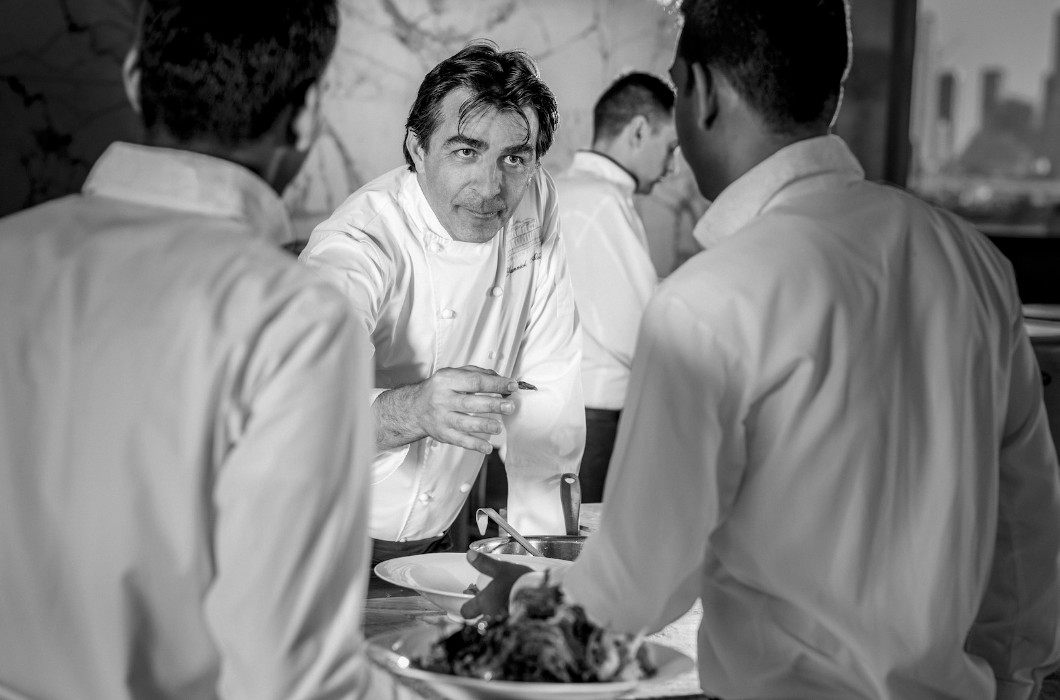
When did you know you were going to be a chef?
My parents owned a bistro, so I quite literally grew up around my mother's pans. I loved the warm, friendly atmosphere of the bistro, especially the counter where people would gather and chat. That desire to share moments with others became my foundation, which I combined with my own sense of precision and excellence.
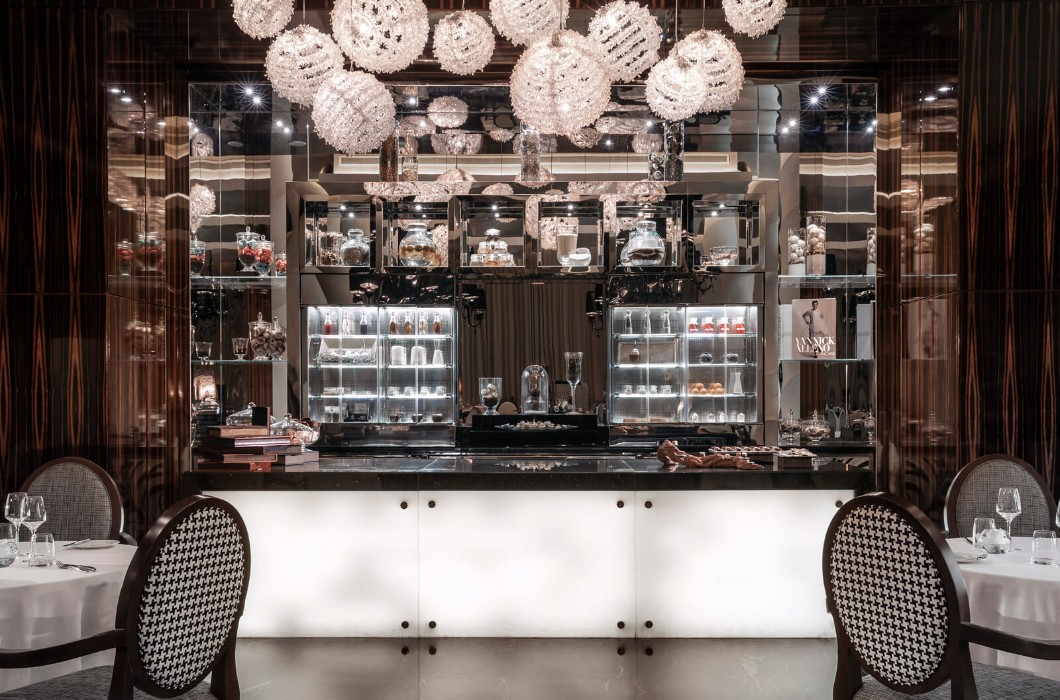
You started off in the family restaurant - are there any valuable lessons you learned there that you continue to use today?
In my parents' bistro, every customer was treated equally, whether they were a top CEO or a local worker. What I loved most about the bistro was how it brought together people from different backgrounds and cultures. Regardless of why they came, they entrusted us with a significant moment in their day—the act of eating. It was our responsibility to make that experience exceptional, and that sense of respect for every guest continues to guide me today.
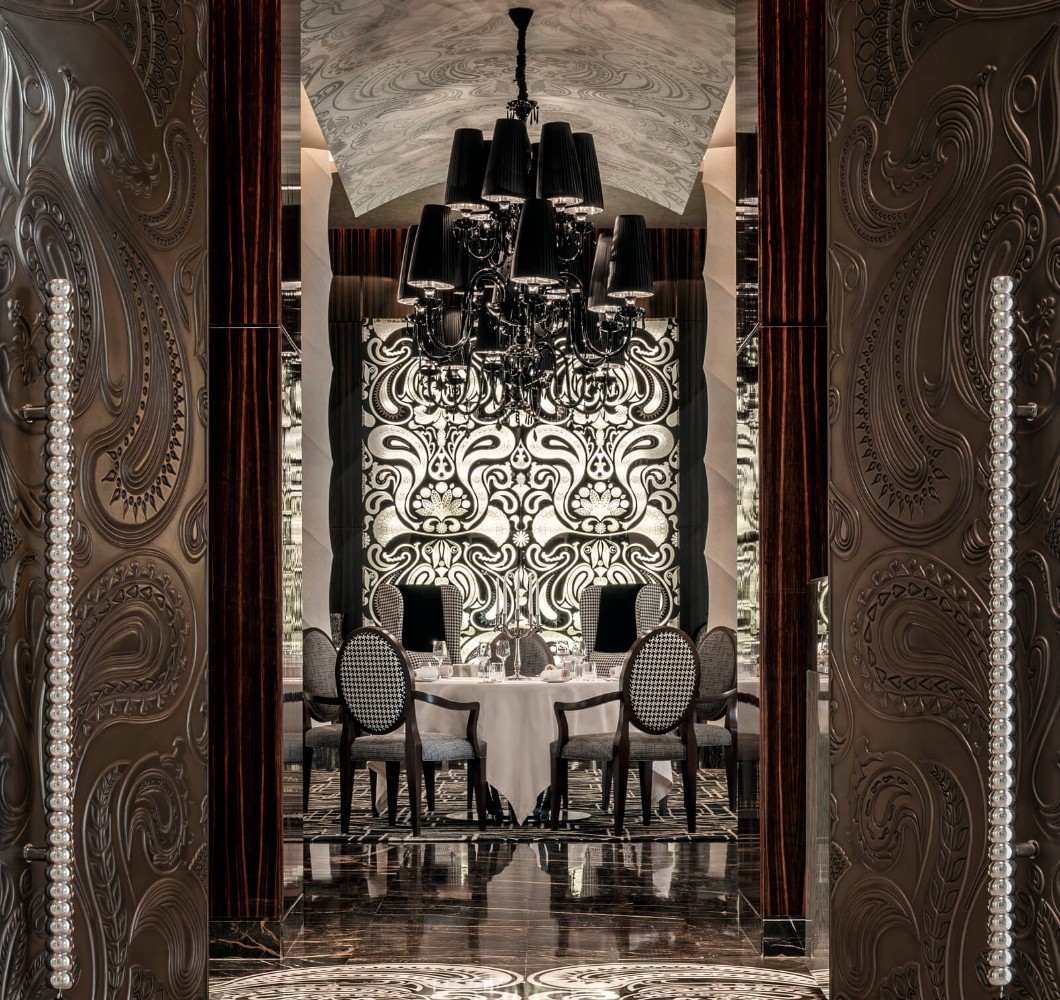
You are famed for reinventing French cuisine for the modern gourmand. What is your creative process when developing new dishes?
The product always comes first—it’s the anchor of everything I create and is dictated by the seasons. I focus on enhancing the ingredient without altering its essence, choosing the right cooking techniques and complementary ingredients. Ultimately, the sauce brings it all together, completing the dish.
You have said before ‘Sauce is the verb of French cuisine’. Tell us why a sauce is so important to any dish?
The sauce is what makes the elements of a dish communicate and come alive. I’ve developed techniques like extraction, fermentation and cryoconcentration to capture the pure essence of the ingredients, resulting in sauces that are both powerful and precise in flavour. These sauces are lighter and also preserve the nutrients, ensuring they elevate the dish without overwhelming it.
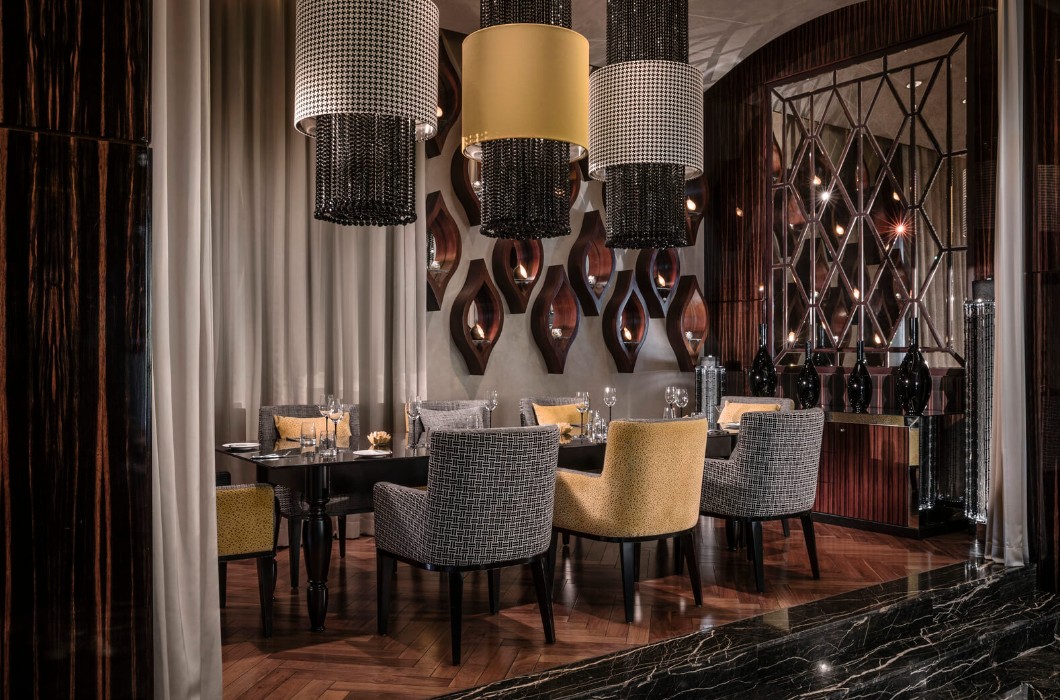
Do you create a sauce for a dish or a dish for a sauce?
The sauce and the dish are inseparable in my process—I think about them as a single entity.
From Paris to Dubai, what are your thoughts on the UAE food scene?
The UAE food scene is truly remarkable and inspiring. It’s a melting pot of cultures where flavours from around the world come together, creating a unique culinary landscape. What impresses me most is the constant pursuit of excellence and innovation, with chefs and restaurants pushing boundaries. The diversity of cuisines and the openness to new ideas make it an exciting place for any chef. It’s an honour to contribute to this vibrant gastronomic ecosystem through my work at One&Only The Palm.
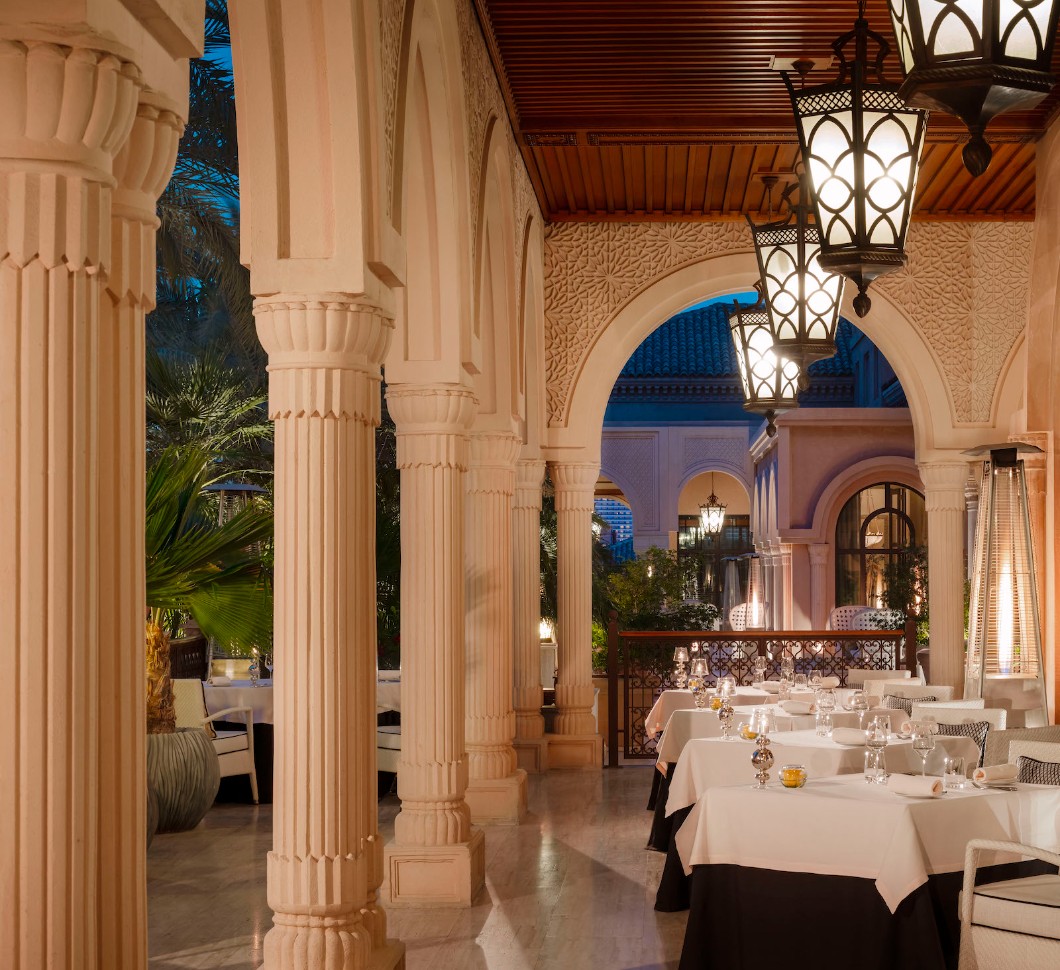
As someone who has experience of opening restaurants throughout the globe, is there a need to adjust recipes for the local palate and local ingredients in other locations?
Absolutely. Each region has its own culinary traditions, products, and terroirs that deserve to be celebrated. It’s essential to collaborate with local producers and integrate their exceptional ingredients into the menu. It’s not just about tweaking recipes—it’s about respecting the local culture and crafting a unique culinary experience that resonates with the people.
STAY By Yannick Alléno retained its two-Michelin star status in 2024; is it harder to earn a star or to retain it?
Both are equally challenging, but in different ways. Earning a star requires showcasing your vision, creativity and technical excellence. Retaining it, however, is about consistency—maintaining the highest standards every day, adapting to evolving expectations and continuously innovating. It’s a relentless commitment, and I’m incredibly proud of my team at STAY for their dedication and passion, which made this achievement possible.
-a2s8fy.jpg)
Having been involved in the culinary industry for nearly 40 years and earned several Michelin stars, what is the key to staying relevant?
The key is constant evolution and surrounding yourself with the right people. Complacency is the enemy. You have to keep exploring new techniques, honor traditions, and push boundaries simultaneously. Collaboration is vital—working with creative, talented teams fuels innovation. Ultimately, it’s passion and the desire to evoke emotion through food that keep me motivated and inspired every day.
-mhuyt1.jpg)
Outside of the kitchen, do you have any other passions or pastimes?
Spending time with my family is my foundation—it keeps me balanced. Cooking is also a shared joy; my wife makes an incredible sage risotto, and though I try, hers is always better! Boxing is another passion; it helps me recharge and refocus.
Art has also become a significant part of my life, thanks to my wife, who is a gallerist. She constantly introduces me to incredible new works, deepening my appreciation. Lastly, I’m endlessly curious—it’s both a gift and a challenge as I’m always drawn to new interests that captivate me.
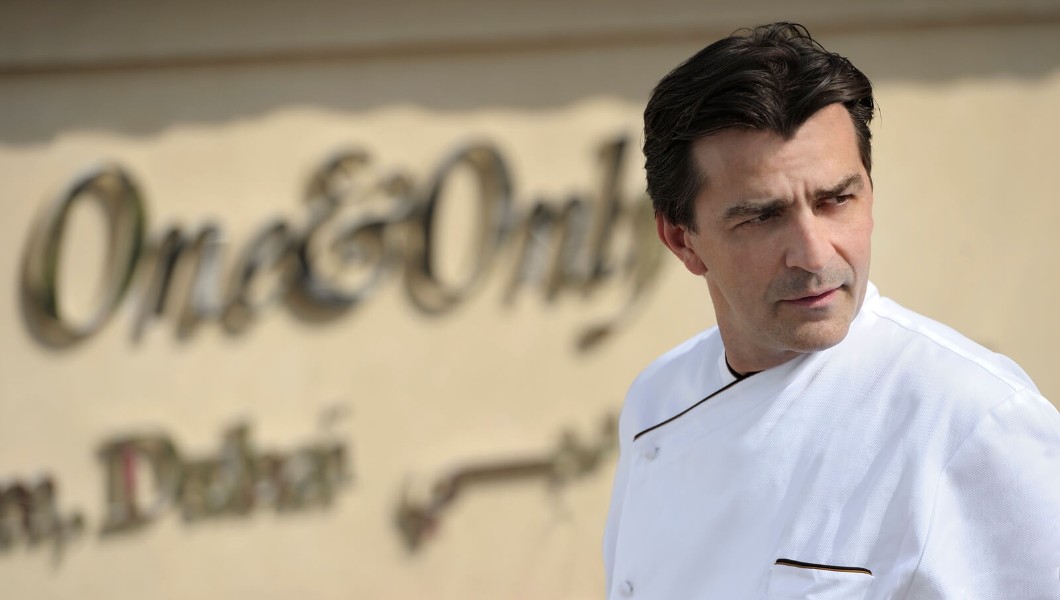
And finally, are there any exciting announcements that you would like to tell us about?
Taking charge of the Orient Express’s culinary journey is an honor. This iconic name represents elegance and adventure, and I’m excited to craft dining experiences that reflect its timeless allure. Onboard the trains and the Silenseas yacht, my team and I will celebrate the journey through exceptional techniques, local flavors, and a sense of discovery. Each menu will tell a story inspired by the destinations, ensuring every meal becomes an unforgettable memory. This marks the start of an exciting chapter, and I look forward to sharing more as the projects unfold.
THE GRILLING
First dish you really ‘mastered’ cooking?
The omelette.
What motto do you live by or cook by?
That of my Breton ancestor, Alléno de Saint-Aloüarn: Mat eo kelenn e pep amzer (Teaching is good at all times).
Best piece of advice you’ve been given throughout your career?
To not follow others, their opinions or their advice blindly. Instead, stay true to your own vision and values. It’s easy to get lost when you try to please everyone or follow trends, but staying on your own path ensures that you remain aligned with what truly matters to you.
Favourite dish to cook?
My wife's sage risotto, a family dish.
Three ingredients you could never cook without?
Celeriac, lemon and Sauce Maggi.
Favourite country/city to travel to for food?
Italy for the richness of its terroirs.
If you had a last meal, what would it be and why?
A pizza surrounded by the people I love.
Greatest food indulgence?
I love chips; they’re my guilty pleasure.
Strangest thing you’ve eaten – why/where ?
Sea cucumber in China.
Most memorable meal - where/why/what?
Having breakfast on a glacier in the Alps. It was a magical moment.
Who has inspired you most throughout your career and why?
Auguste Escoffier has been my greatest inspiration throughout my career. His work laid the foundation of modern gastronomy, and his legacy continues to guide chefs around the world, myself included. I encourage every one of my collaborators to read Le Guide Culinaire at least once in their life, not just as a reference but as if it were a novel. It’s a masterpiece of technique, precision, and passion. Even today, I don’t let a week go by without opening it to seek inspiration—it’s a constant reminder of the importance of innovation built on strong foundations.
Favourite cooking TV show and why? Or favourite chef autobiography?
I really like the concept of Top Chef, which brings talented professionals and future great chefs into the spotlight. The contestants have the opportunity to learn and challenge themselves with new techniques over several weeks—it’s an excellent school. I’m particularly thinking of Mallory Gabsi, an incredible 27-year-old who opened his restaurant in Paris and earned one Michelin star—he’s going to go far, and I’m glad this show allowed us to get to know him.







